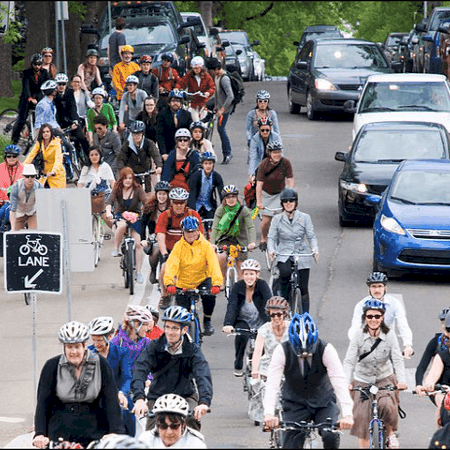


The heritage of freedom and mobility of the private motor vehicle is under attack by those who would replace roads and private vehicles with walking paths, bike lanes and public transportation. These self-styled reformers cite statistics showing slight declines in "vehicle miles traveled" and extrapolate a significant message from these insignificant figures. The national decline has been just 5 percent per capita from 2000 to 2012; In Idaho, it's been just 2 percent.
Despite the erroneous use of these statistics to support a particular worldview, the decline in vehicle miles traveled is likely more attributable to increases in fuel prices, economic downturns and the proliferation of GPS navigation systems that help individuals drive more efficiently. Assuming that Americans would rather take the bus than drive their own cars is a stretch at best and outright propaganda at worst.
A three-day Community Mobility Institute was recently put on in Boise by Idaho Smart Growth in partnership with the Sonoran Institute, Community Builders, Project for Public Spaces and Bike Walk Montana. The message conveyed to attendees from around the state was that “transportation has a broader purpose than moving vehicles.”
The Project for Public Spaces is a New York City-based organization focused on creating more public spaces. Its message is shockingly unapologetic; "We need to move away from high-speed mobility."
The Sonoran Institute's Western Colorado Legacy Program wants cities and towns to understand "how to better connect transportation, economic development and community development."
The proper role of government, however, is not to engage in "economic development" or "community development," but to provide an infrastructure that supports individual freedom and business growth. Instead, these activists want to reallocate infrastructure spending to coerce individuals and modify their behavior.
The threat is real. From turning Boise State into a "walking campus" by closing University Avenue altogether (yes, that concept is actually being considered) to replacing already crowded vehicle lanes in Boise with bike paths or the "trolley folly" at taxpayer expense, the freedom and mobility of Idahoans are under attack. The city of Boise has proposed higher rates for parking meters along with expanded hours of enforcement at the same time that it is supporting a bike-share program based on a model that is failing nationwide.
Unless you want to live in a country in which individually owned vehicles are but a historical oddity and whatever driving is permitted exists in an Orwellian nightmare of mileage taxes (which Oregon is already beginning to implement) and real-time tracking and surveillance, I'd suggest that you start getting involved. Attend your local city council meetings. Pay attention to what's happening with highway districts and transportation departments. Let your voice be heard. Vehicles equal individual freedom, and that's something neither tyrants nor busybodies can tolerate.


